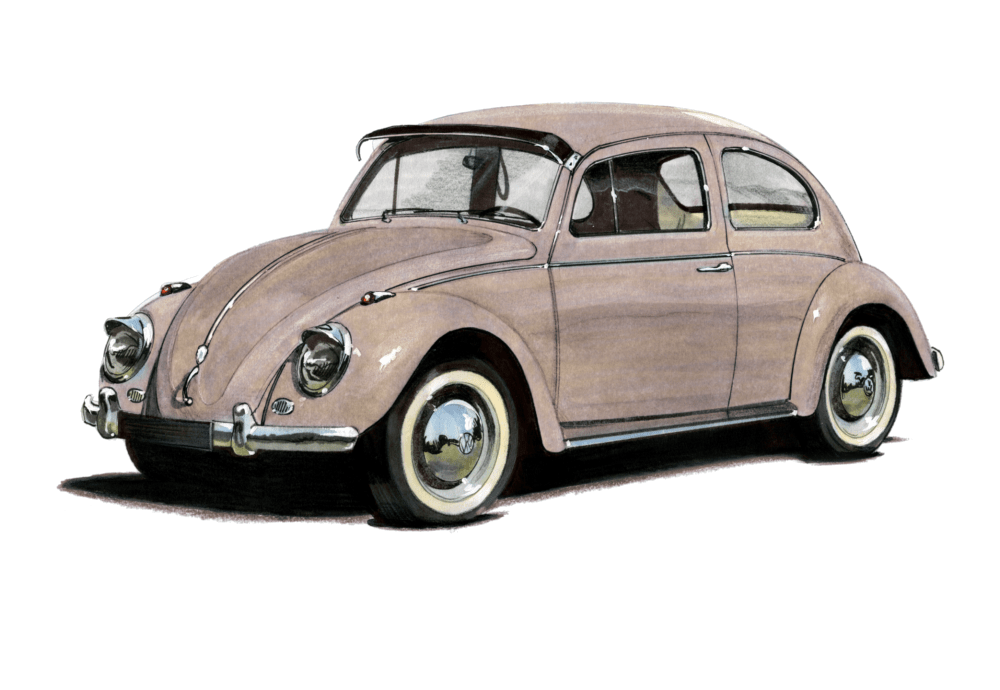
Volkswagen has a storied legacy that spans across continents, generations, and lifestyles. Among its extensive lineup of cars, the VW Beetle stood as the most iconic and enduring symbol of the brand’s diverse identity. However, the automaker announced in 2018 that it would stop production of the Beetle. Many were left wondering why Volkswagen decided to take such a step and discontinue the emblematic car.
First, it’s important to understand that the car industry is one that is dictated by the changing tastes and preferences of its consumer base. Auto manufacturers continually redefine their strategies to stay aligned with the evolving market trends and customer demands. Particularly in the 21st century, the auto industry has rapidly transitioned toward SUVs and electric vehicles (EVs), as customers lean towards functionality, spaciousness, and environmentally-friendly options.
The Beetle, often cherished as an emblem of the counterculture movement and synonymous with the flower power era of the 1960s, was anything but a modern sport utility vehicle. Compact and unique, it was designed for a different era and a significantly different market demographic. The drop in sales for smaller vehicles, coupled with the Beetle’s inability to fit into the burgeoning SUV product line, gave Volkswagen a strong market basis for discontinuing the Beetle.
Furthermore, the challenge of integrating modern technology into the retro-styled Beetle proved quite demanding for Volkswagen. Customers today expect sophisticated technology integration in their vehicles, which implies the use of large digitalized screens, wireless connectivity, autonomous driving aids, and much more. Embedding such features into the bug-shaped Beetle without troubling its classical outlook presented a formidable challenge, potentially contributing further to its discontinuation.
Another significant factor influencing this decision has been the shift towards environmentally friendly vehicles. Volkswagen made it clear that they are heavily investing in EVs and hybrid technology, intending to launch multiple electric models in the coming years. This move is known as Volkswagen’s “Transform 2025+” strategy, which emphasizes electric mobility. Consequently, it was inevitable that resources would be shifted away from vehicles like the Beetle that don’t align with this electric-centric future vision.
Finally, one of the critical factors that cannot be overlooked was the aftermath of the Dieselgate scandal. Volkswagen’s reputation was severely affected by the scandal; discontinuing the Beetle was considered by some as a step towards a fresh start and to distance the company from the scandal that cost billions of dollars.
Despite ending the Beetle’s production, Volkswagen’s commitment to preserving its rich heritage should not be overlooked. While we bid adieu to the Beetle, it’s important to remember that Volkswagen is focusing on reimagining its classic models for the future. The VW Microbus, for instance, is being reinvented as the ID.Buzz but this time as an all-electric vehicle, demonstrating how Volkswagen is blending its iconic past with an innovative and sustainable future.
In conclusion, the discontinuation of the Beetle was driven by a mix of changing consumer demands, the rapid shift in the auto industry towards bigger vehicles and EVs, challenges in technological integration, and a bid to distance the brand from its controversial past. The Beetle had a good run, but now Volkswagen is charting a new course, one that still values its robust heritage but is more aligned with the zeitgeist of the times. The end of the Beetle’s production marks the end of an era, yet it also symbolizes a new dawn for Volkswagen, one that’s progressive and forward-looking.